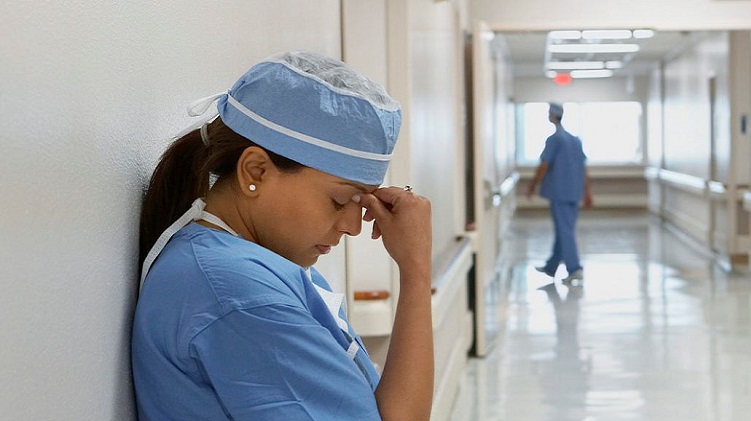Workplace Bullying and Sexual Harassment
28 May 2015

A student asked “Why are you taking skin from behind the ear? Aren’t Wolff grafts usually taken from the crook of the elbow?” The Surgeon apparently did not hear the question as he launched into an especially foul joke. The 21-year-old scrub nurse blushed. The Surgeon then pointed to her and said, “If you take blushing skin to put on a blushing area, it will blush and not just stay white when the patient blushes.”
Sexual harassment?
Yes!
The Australian Human Rights Commission defines sexual harassment broadly as “… any unwanted or unwelcome sexual behaviour, which makes a person feel offended, humiliated or intimidated.”1
Also, the Sex Discrimination Act 1984 (Cth)2 in Division 3, Part 2, s28A makes clear that sexual harassment includes “making a statement of a sexual nature to a person, or in the presence of a person, whether the statement is made orally or in writing…”.
Reverting to the anecdote:
- locker room humour is not appropriate in theatre and could well be seen as “unwanted or unwelcome sexual behaviour”
- using the nurse’s embarrassment to make a point was cruel.
I suspect that if that incident happened today, in many cases, the offended staff – male or female, nursing or medical – would shut down that list by walking out and the Surgeon would face a disciplinary process.
The Sex Discrimination Act 19842 clearly states:
(1) For the purposes of this Division, a person sexually harasses another person (the person harassed) if:
(a) the person makes an unwelcome sexual advance, or an unwelcome request for sexual favours, to the person harassed; or
(b) engages in other unwelcome conduct of a sexual nature in relation to the person harassed;
in circumstances in which a reasonable person, having regard to all the circumstances, would have anticipated the possibility that the person harassed would be offended, humiliated or intimidated…
That incident from 30 years was also an episode of bullying, related to power imbalance. The scrub nurse and the Surgeon knew that the nurse could not just walk out. Now, she still might not, but either she or the nurse unit manager may immediately reprimand the Surgeon and then later lodge a formal complaint which is likely to be upheld.
Some doctors who have been around for a while may see the bullying they experienced as students and juniors as a “rite of passage” – a transitional period that ensured they had the fortitude as well as the knowledge and experience to survive life in the profession: “It turned me into the doctor I am today – and will do the same for my interns and residents.”
However, today’s young doctors are exposed to a level of pressure many orders of magnitude greater than their seniors were when they were juniors. The recently reported suicides of four junior doctors in Victoria are sad and alarming evidence of this. Perhaps some of the doctors of my era need to unbolt and remove the armour they bolted on to block their awareness of the distress exhibited by some of the people they work with.
Brian Owler, President of the AMA, in a recent newspaper article3 quoted the late Professor Yvonne Cossart of the University of Sydney who had said to him, pointing to the Royal Prince Alfred Hospital: “Those guys are really mean to each other when it comes to politics, but when one of them is in trouble, they will do everything they can to help…” He also quoted the words of the late Professor Chris O’Brien who said: “We are all colleagues; we may have different seniority, but we are all members of the profession.”
If we extend that principle to all the people we work with, we will be impelled to show them the grace and courtesy that lies within all of us, and to which they are entitled.
Dr Paul Nisselle AM
Mutual Board Director
MDA National
1. Australian Human Rights Commission. Sexual Harassment. Available at: humanrights.gov.au/our-work/sex-discrimination/guides/sexual-harassment.
2. Sex Discrimination Act 1984 (Cth). Available at: comlaw.gov.au/Details/C2014C00002.
3. Owler, Brian. Misogyny in Medicine: Don’t Put Up With It. The Age (Melbourne) March 25, 2015 p47.
Professional boundaries in healthcare - Part 1
Boundaries with patients present in numerous ways every day and all health practitioners
11 Aug 2025
Understanding Professional Medical Indemnity Insurance
Do you understand the ins and outs of professional medical indemnity insurance?
11 Aug 2025
Professional boundaries in healthcare - Part 2
Boundaries with patients present in numerous ways every day and all health practitioners
11 Aug 2025
Understanding changes to the Fair Work Act
What are the changes to the Fair Work Act and what is my role?
22 Jul 2025






